People from all around the world find bearded dragons, which are interesting creatures, to be fascinating. As pets that are naturally curious and require little care. They have the potential to bring their owners a tremendous lot of happiness and connection. Nevertheless, in spite of the fact that they have a pleasant demeanor, they are armed with a set of pointy fangs and are able to bite.
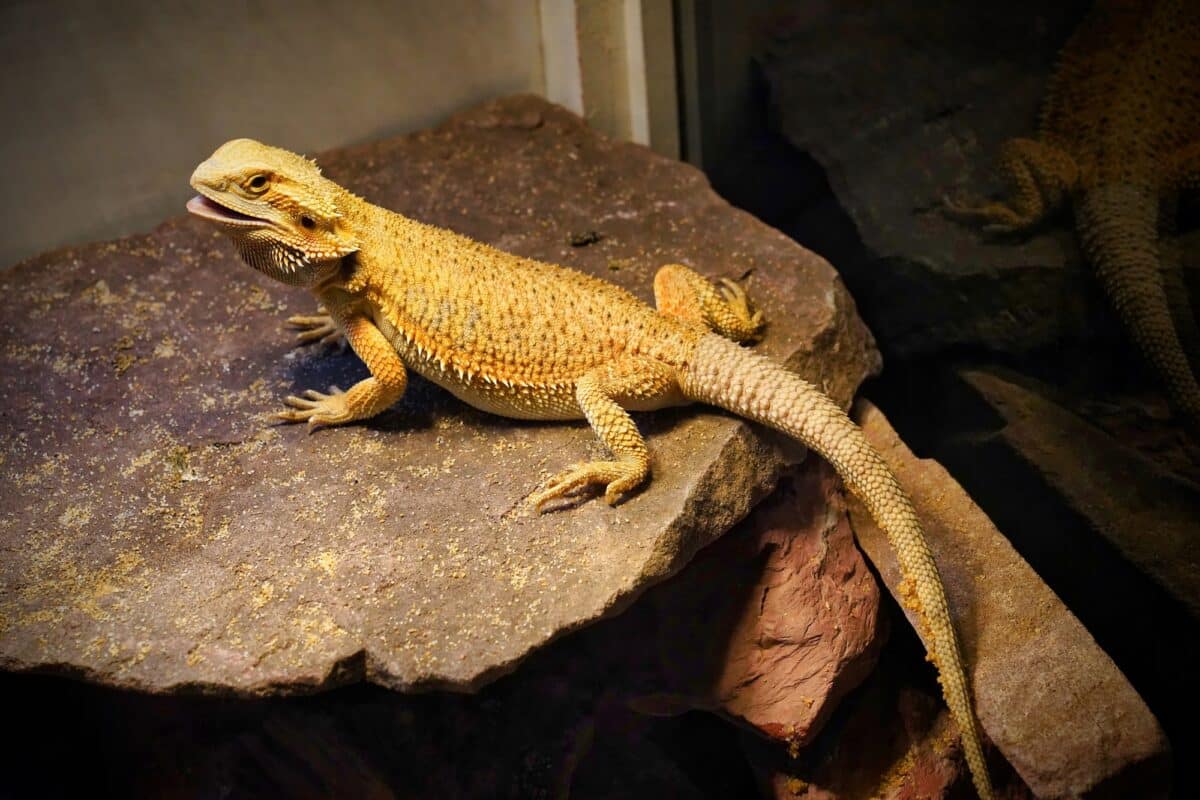
Even though it is true that bearded dragons rarely bite, owners should nonetheless be aware of the possibility. In this in-depth tutorial, we will delve into the realm of bearded dragon bites. We will analyze the reasons why these seemingly innocuous lizards may sometimes turn to bite their keepers.
Bearded dragons are a popular pet in many parts of the world. In addition, we will share some helpful hints with you on how to lessen the likelihood of being bitten by your bearded dragon, as well as some important information regarding how to care for them after they have been bitten.
Let’s investigate the phenomenon of bearded dragon bites and find out how to protect not only ourselves but also the animals that are dear to our hearts from potential danger.
Jump to any section below!
Factors That Contribute to Bearded Dragon Bites
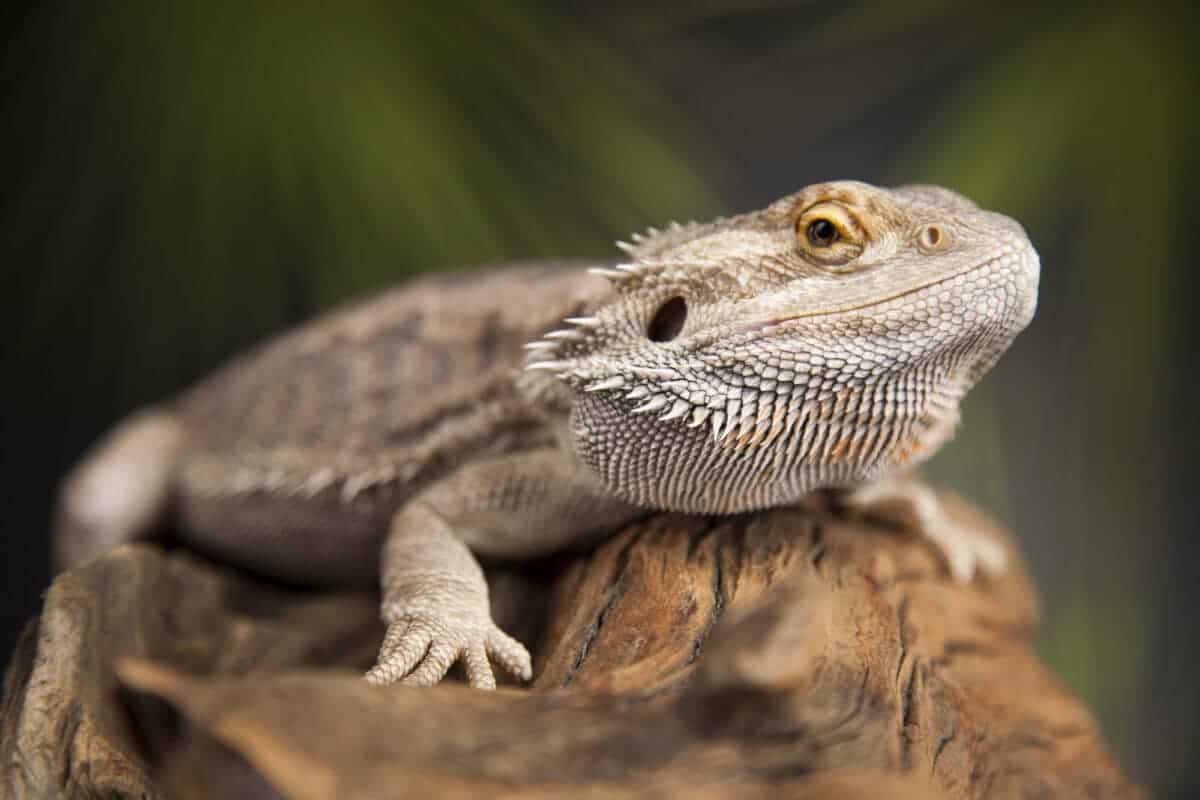
Bearded dragons are typically peaceful creatures, but they can resort to biting when they feel threatened or agitated. Fear plays a significant role in triggering bearded dragon bites, as they may bite in self-defense if they believe they cannot escape a perceived danger. For example, if you reach too quickly for their food bowl, they might interpret it as a threat and react by attempting to bite.
Another common reason for bearded dragon bites is aggression, often stemming from their territorial nature. These reptiles can become quite protective of their territory, leading them to bite intruders they perceive as threats. During the breeding season, especially among male bearded dragons, heightened territorial behavior can result in biting as a means to establish dominance. In some cases, bearded dragons may even try to assert dominance over their owners by biting or nipping if they view them as lower-ranking members of their social hierarchy.
Understanding the factors that contribute to bearded dragon bites is essential for the well-being and harmony of both you and your pet.
Check out: Green Iguana Bites: 10 Essential Tips for Safe Pet Ownership.
The Risks Involved in Being Bitten by a Bearded Dragon
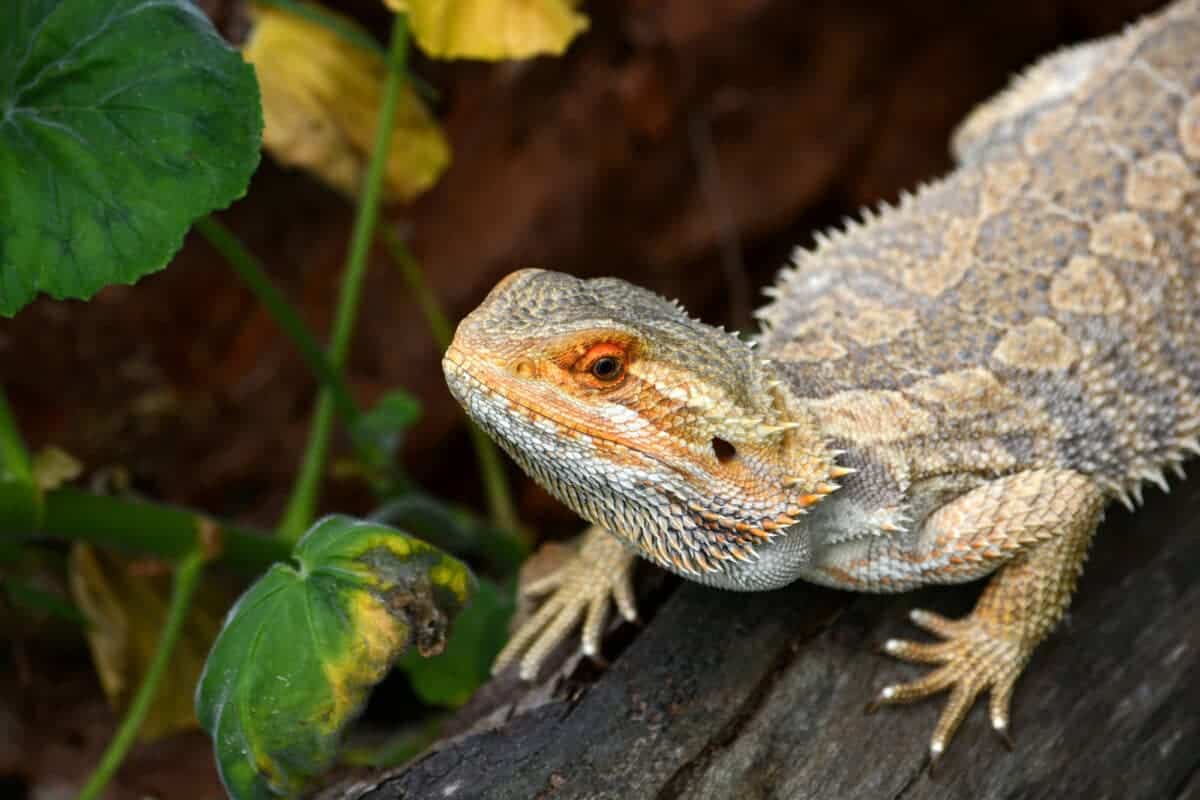
While bearded dragon bites are typically not life-threatening, they do come with the potential for bacterial infection and other health complications. The severity of the bite can vary depending on factors like the dragon’s size and age.
Younger dragons tend to have sharper teeth, which can result in more painful bites. Larger bearded dragons, though not frequent biters, can cause more substantial injuries if they do bite, including deep puncture wounds and torn flesh, although this is relatively uncommon. Additionally, the saliva of bearded dragons contains bacteria, which can lead to an infection if the wound is not properly treated.
It’s crucial to maintain good hygiene after a bearded dragon bite. Clean the affected area thoroughly, apply an antiseptic, and closely monitor it for any signs of infection, such as redness, swelling, or discharge. If the wound worsens, becomes increasingly painful, or shows signs of inflammation, seeking medical attention may be necessary.
Precautions to Take to Avoid Being Bitten by a Bearded Dragon
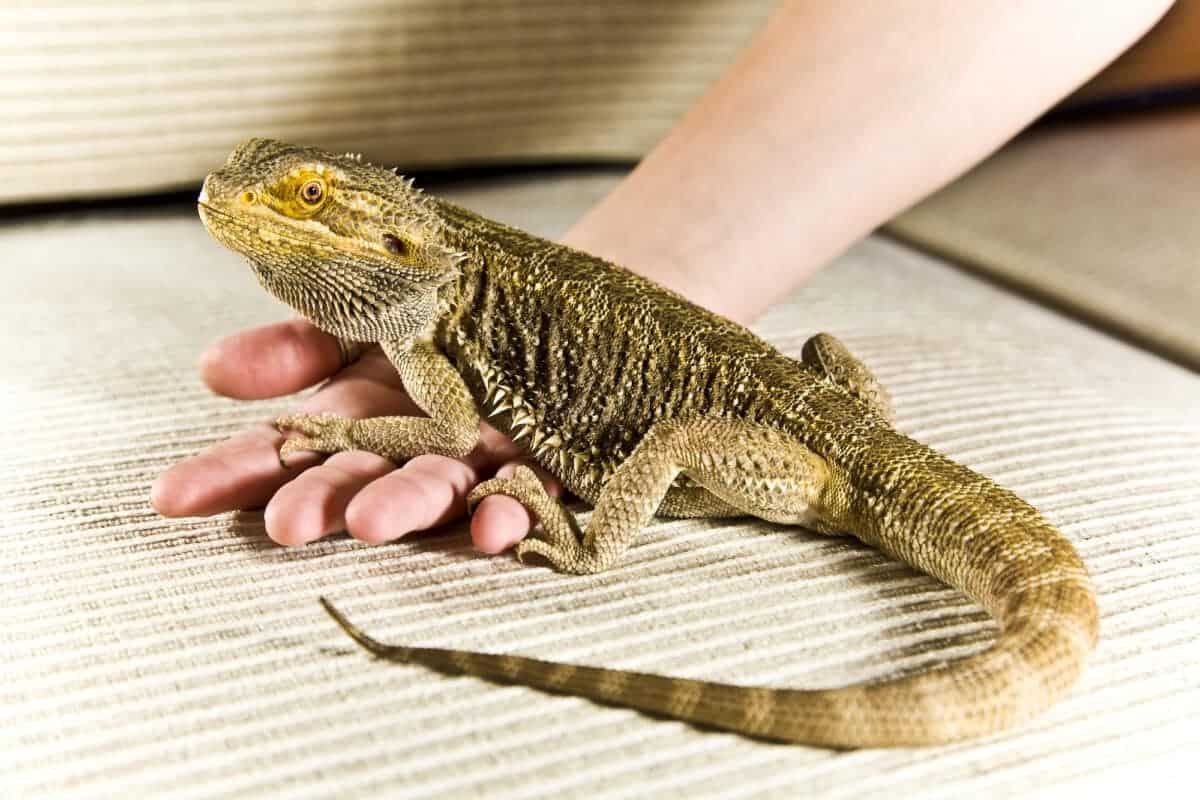
To avoid getting bitten by a bearded dragon, it is essential to have a solid understanding of their habits and requirements as a species. Handling the dragon consistently is an effective approach to acclimatize it to human touch and lessen the likelihood of hostile behavior on its part.
This not only makes the dragon feel more at ease when they are around people, but it also makes them less likely to bite while they are being picked up. The correct arrangement of the cage is another important factor in the prevention of bites. Your bearded dragon will feel more at ease and self-assured if they are housed in an environment that is roomy, well arranged, and features areas for basking, hiding, and varying temperatures.
It is critical to approach and engage with them in a manner that does not threaten them, taking care not to shock or frighten them in any way. When it comes to establishing trust and pleasant connections, movements that are slow and soft are essential.
Check out: The Largest Gorilla.
First Aid Instructions if Your Bearded Dragon Bites You
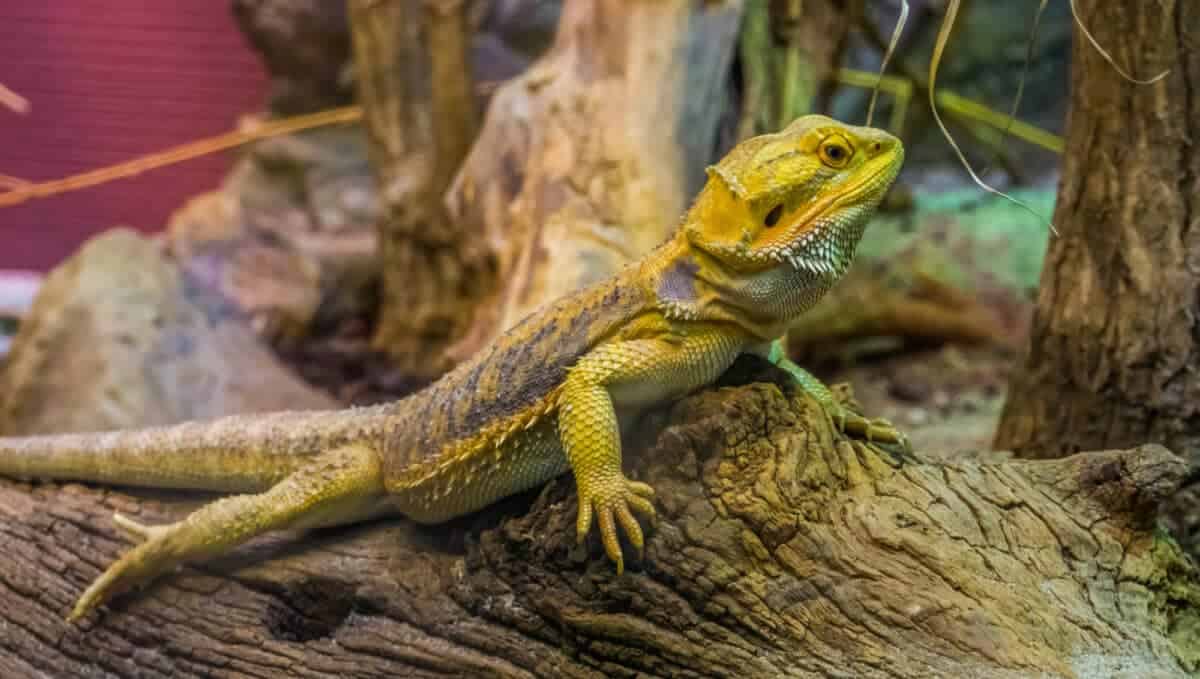
In the event that your bearded dragon bites you, it is essential to maintain your composure and respond in a proper manner in order to reduce the risk of injury and infection. The cut should be cleaned with soap and warm water as soon as possible. Then antiseptic should be applied to the injured area.
Maintain vigilance to identify any indications of infection. If the wound develops an infection, you should seek medical assistance as soon as possible. In addition to this, it is essential to deal with the behavioral issue that your bearded dragon is having. Determine the reason for the biting. Whether it is due to fear, anger, or any other underlying issue, and then take steps to resolve it.
The biting could be caused by any of these things. You should seek the advice of a veterinary professional to better understand the behavior of your bearded dragon. Furthermore, to receive direction on how to deal with the biting issue.
Check out: Largest Asian Elephant.
Key Points
| Bearded dragons are popular pets around the world and can be a source of joy for their owners. |
| Fear, aggression, and dominance are primary factors that lead to bearded dragon bites. |
| While not life-threatening, bites from bearded dragons can cause bacterial infection and other health consequences. |
| To avoid getting bitten by a bearded dragon, its habits and requirements must be understood, it should be handled often, and its cage should be arranged appropriately. |
| If bitten by a bearded dragon, the area should be cleaned with soap and warm water while antiseptic is applied; if necessary, seek medical attention. |
The Bottom Line
In conclusion, because of their unique characteristics, bearded dragons are excellent pets and ideal reptilian companions. It is essential, however, to keep in mind that they have the capability of biting if they feel threatened or provoked in any way.
When caring for any animal as a pet, it is essential to have a solid understanding of its mannerisms and requirements in order to provide a setting that is both secure and conducive to good health. It is possible to lessen the likelihood that your bearded dragon will bite you or anyone else by ensuring that it receives the appropriate care and attention.
When interacting with them, you should always be patient and respectful. You should also avoid making sudden movements or loud noises. Lastly, you should give them plenty of room and time to adjust to their new surroundings. Keeping these safety measures in mind will allow you and your bearded dragon to live a long, fulfilling, and disease-free life together.
Thanks for reading along! See below for related article links.
Next up:
- The Northern Pacific Rattlesnake Bite
- Mighty Komodo Dragon Bite
- What To Do After A Red-Bellied Black Snake Bite
- How Can You Avoid Getting Bitten By A Yellow Sac Spider
- The Northern Copperhead Bite
- Washington’s Western Rattlesnake
- Discover San Francisco’s Most Dangerous Animals
- Watch: Lizard Greets Man like a Dog! - April 25, 2024
- Mama Deer Is So Worried About Her Baby - April 25, 2024
- Watch Innocent Baby Bird Walks up to Leopard – Wild Ending! - April 25, 2024

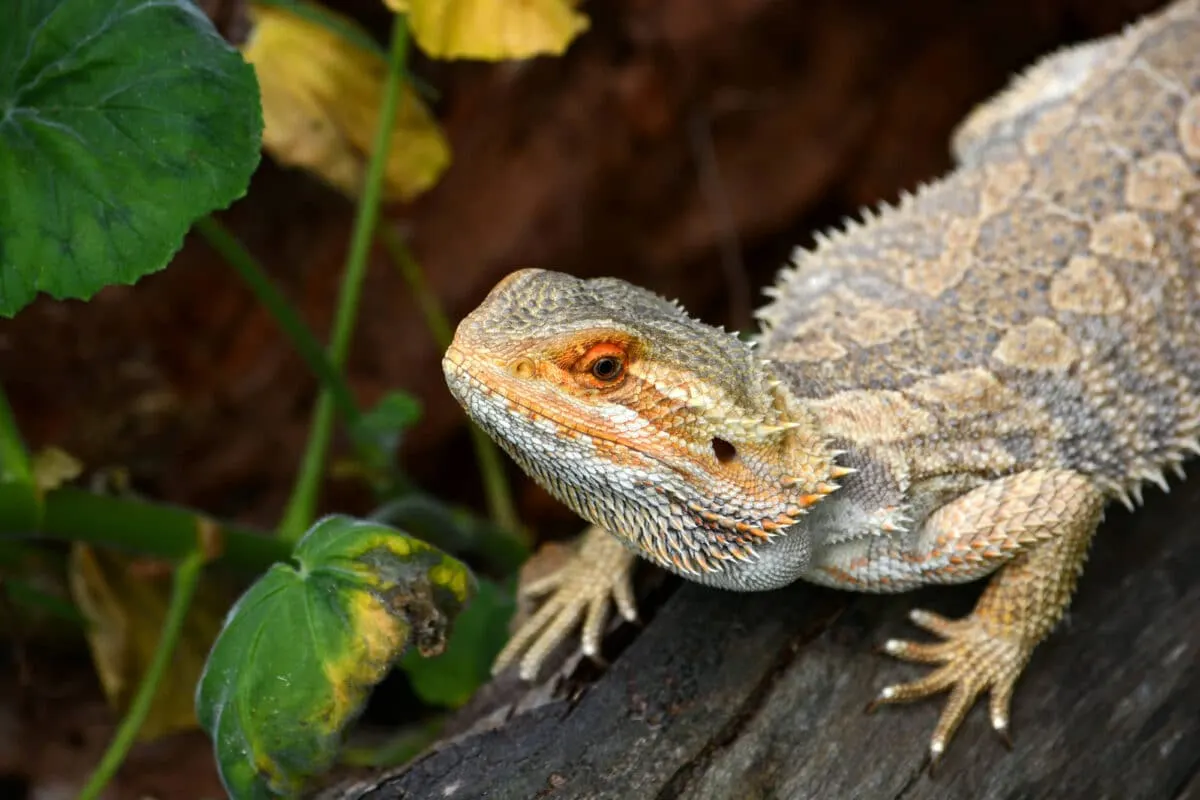

Cristine Kulkowsky
Wednesday 23rd of August 2023
I have always been a fan of bearded dragons. At first I was a fan of Eguanas I had found one in my bushes and I caught it, I gave it to the pet store and I bought a baby but I didn't know that much about them but I knew it wasn't well so I took it to the pet store and I asked them to please take it they told me that they would not give it back to me and I said it was okay as long as they kept him alive. But I studied a lot about the bearded dragon before I got one and he is a little older than 2 years now and he is great!!!